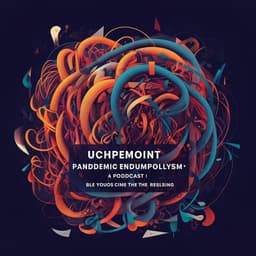
Political Science
Chinese online nationalism as imaginary engagement: an automated sentiment analysis of Tencent news comments on the 2012 Diaoyu (Senkaku) Islands incident
Q. Zhang and C. Wang
This research by Qiaoqi Zhang and Cheng-Jun Wang explores how Tencent shapes news narratives to manage popular nationalism, particularly during the 2012 Diaoyu Islands incident. Through extensive sentiment analysis of over 500,000 comments, the study unveils the shift from stimulative to restrictive nationalist narratives to maintain social governance, revealing the emotional dynamics that influence online nationalism.
~3 min • Beginner • English
Related Publications
Explore these studies to deepen your understanding of the subject.







